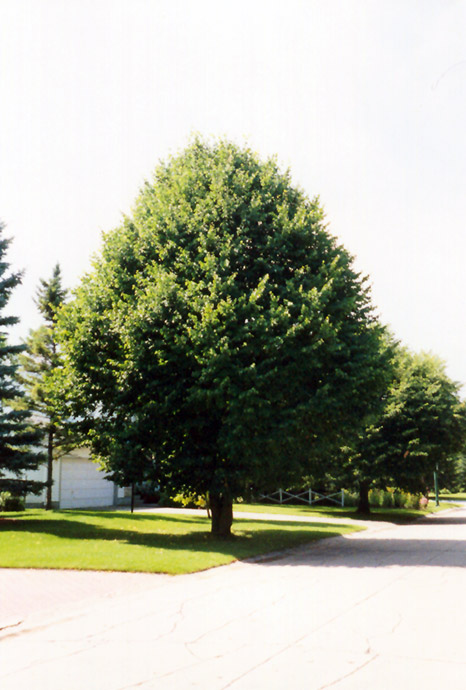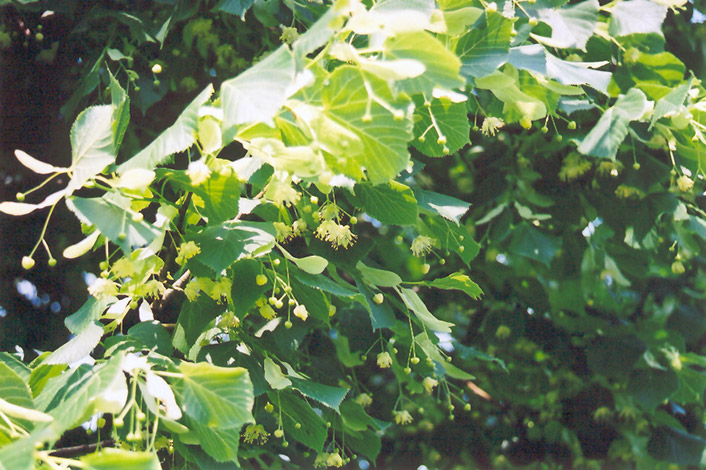Height: 50 feet
Spread: 30 feet
Sunlight:
![]()
Hardiness Zone: 3a
Other Names: Lime, Smallleaf Lime
Description:
One of the very best lawn trees for home landscapes, forming a tight pyramid throughout life, with highly fragrant yellow flowers in early summer when few trees bloom; excellent size for small properties or as a street tree, hardy and adaptable
Ornamental Features
Littleleaf Linden is primarily valued in the landscape for its distinctively pyramidal habit of growth. It features subtle clusters of fragrant yellow flowers with tan bracts hanging below the branches in early summer. It has dark green deciduous foliage. The heart-shaped leaves turn an outstanding yellow in the fall.
Landscape Attributes
Littleleaf Linden is a dense deciduous tree with a strong central leader and a distinctive and refined pyramidal form. Its average texture blends into the landscape, but can be balanced by one or two finer or coarser trees or shrubs for an effective composition.
This is a relatively low maintenance tree, and is best pruned in late winter once the threat of extreme cold has passed. It is a good choice for attracting bees to your yard. Gardeners should be aware of the following characteristic(s) that may warrant special consideration;
- Insects
Littleleaf Linden is recommended for the following landscape applications;
- Shade
Planting & Growing
Littleleaf Linden will grow to be about 50 feet tall at maturity, with a spread of 30 feet. It has a high canopy with a typical clearance of 6 feet from the ground, and should not be planted underneath power lines. As it matures, the lower branches of this tree can be strategically removed to create a high enough canopy to support unobstructed human traffic underneath. It grows at a medium rate, and under ideal conditions can be expected to live for 70 years or more.
This tree should only be grown in full sunlight. It is very adaptable to both dry and moist locations, and should do just fine under average home landscape conditions. It is not particular as to soil type or pH. It is highly tolerant of urban pollution and will even thrive in inner city environments. This species is not originally from North America.








